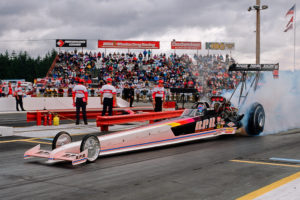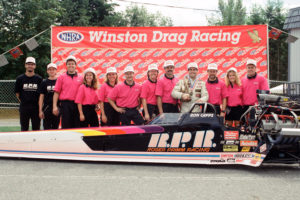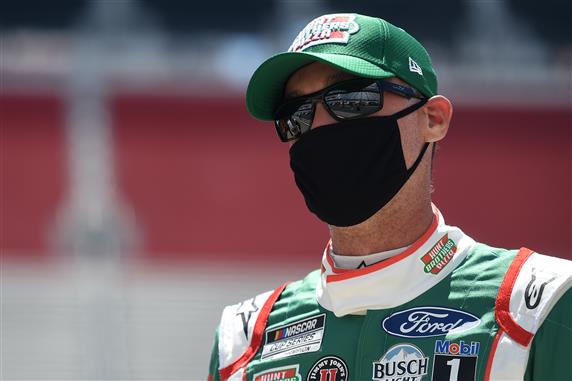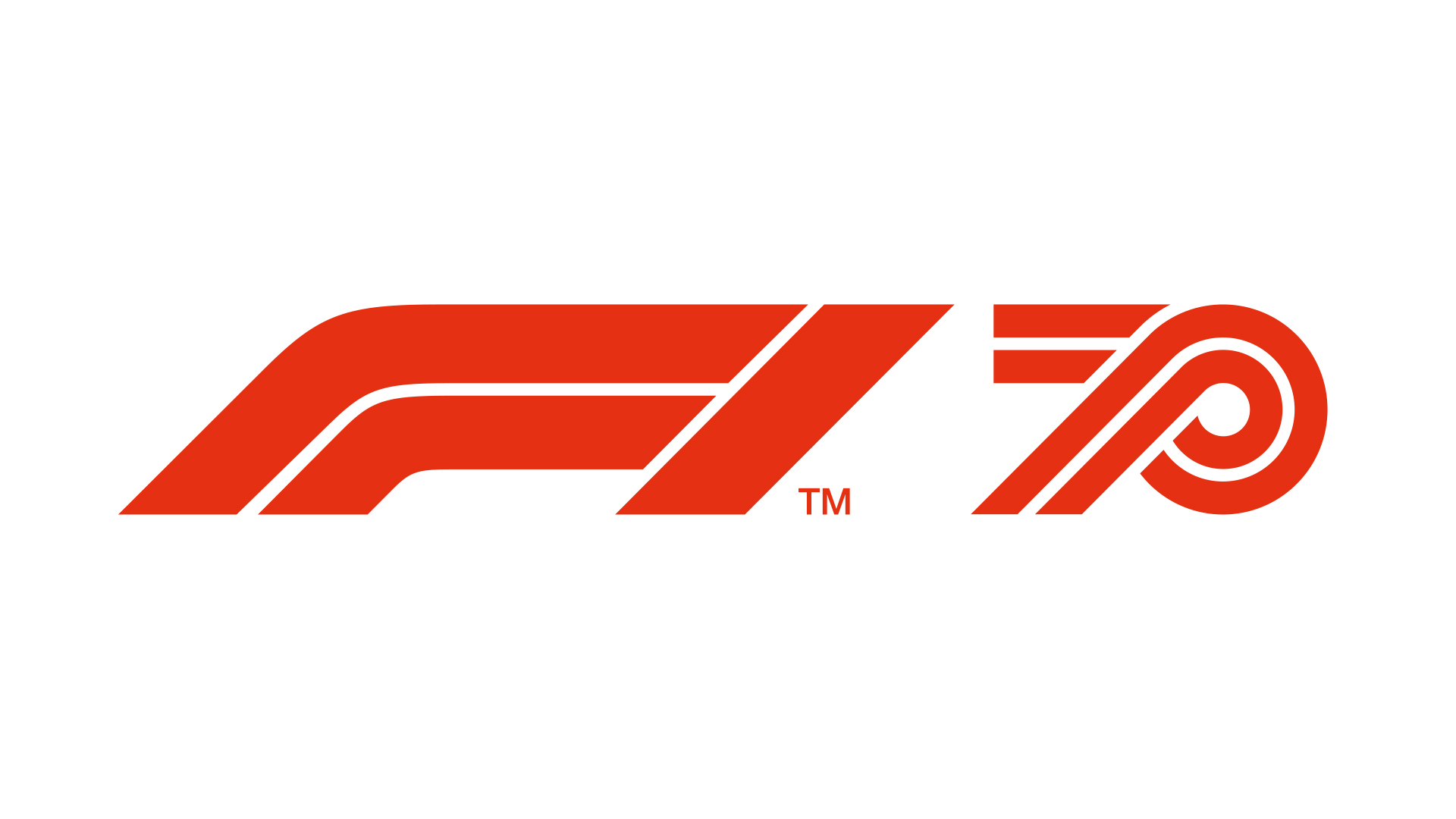In this edition of ‘First Seasons” Speedway Media caught up with NHRA driver, Ron Capps, who ranks second on the all-time wins list in the Funny Car division.
During the interview, the Don Schumacher Racing driver reflected on his first season in NHRA, which occurred in 1995 when Capps drove a Top Fuel dragster on a part-time basis for the legendary Roger Primm. During the interview, the San Luis Obispo, California native details his first victory, why it put him on the map, and what, if anything, he wishes he could have done differently.
SM: You began racing Top Fuel in 1995 for Roger Primm 25 years ago at the age of 30. What was it like making your debut in NHRA during that time period as well as getting connected with Primm who gave you that opportunity?
RC: “For me, I grew up as a crew member working on them (Top Fuel dragsters),” Capps said. “You know, always wanting to drive, but obviously, I didn’t have wealthy parents or anyone I could go to for sponsorship to try and get a ride. So, I had to sort of wait and hope to get a chance, which was hard to come by at that time.”
“The fact I worked on them, it drew the attention of Roger (Primm, Team Owner), but more importantly, his crew chief who took a liking to me. That was basically my chance to get my (NHRA) license. When I was first asked to get my license, that’s just a small step. It’s not a guaranteeing (you a ride). So for me working on them, being a crew member on the road, driving the truck, I think that all really helped my learning curve.”
“So, I remember getting a phone call from Roger, he had narrowed his list down to 20 drivers that were very experienced and big-name drivers. I didn’t think I had a shot at it (driving for Roger), but as the list got smaller, my name kept popping up. To get that phone call was definitely a dream come true.”
SM: At 30-years-old in your first season, did you feel as though it was the right time to break into the sport? Most drivers start at a much younger age.
RC: “That was the other thing,” he said about wanting to race in NHRA. “I had kind of been around a little bit and I got a late start (on racing). I don’t think my path would have happened if it was one small little thing changed for something I did or didn’t do. It was almost, I couldn’t think I would do it again (my career) if I wanted to growing up. Things happen for a reason.”
“I was a crew member and I had just married my wife. I was traveling around a little bit, but I wanted to go on the road and hit all the races one time in my life. She allowed me to do that in our first year of marriage. That sort of gave me a chance where I met that crew chief and gave me a shot of getting my license. To be honest with you, I felt like I was 18–years-old (despite being 30). Being on the road traveling and driving a Top Fuel dragster, and going to races like Atlanta and Indianapolis, places I read about growing up as a kid.”
“You know, my dad drove when I was a kid, but he never did it (NHRA) professionally. Going to every race with my dad as a kid just as a hobby, I never in my imagination would drive for Don ‘The Snake’ Prudhomme who was one of my ultimate heroes growing up. So, I didn’t feel 30 (years old), I just felt like a rookie.

SM: While entering the ‘95 season, do you remember having any high expectations for that year? Was a win on your radar considering your rookie status? What were your expectations as the season began and did those expectations change as the season progressed?
RC: “I think for sure, we exceeded our expectations,” Capps said about his rookie season. “Our rookie year, we didn’t have full-time crew members. We had a few of them, but a lot of them were fly in guys. People who had regular jobs. We were a part-time team, but one of the reasons Roger hired me was because he wanted to get a sponsor.”
“His family was involved in casinos, so we had money from his family, but he wanted to get a legitimate sponsor. So, he wanted to use me in the car, to sort of be a marketability part of it. We didn’t hit every race but ventured out to the east coast because we talked to NCI, which was a huge telephone communications business back then. And at the time, we were only going to hit four or five races.”
“Well next thing you know, we go to Atlanta, and we’re in the final round as a rookie in an unsponsored car and I’m up against a McDonald’s car in the final round of the Southern Nationals. That just doesn’t happen as a rookie, especially for a team that wasn’t funded. That put us on the radar. We were just lucky to qualify for these races. That was our goal, not to tear anything up. Then later that year, I ended up winning the Seattle race. Low and behold, we beat that McDonald’s car that beat us in Atlanta. So, yes, we exceeded our expectations by miles.”
SM: You made your NHRA debut at Phoenix in ‘95. What was it like in the weeks leading up to that event? Were you starting to feel anxious or nervous about getting to the track? What did you do to prepare for your debut?
RC: “We were supposed to start at the Winternationals in Pomona, California, two weeks before that (Phoenix), as that was the second of the race of the season,” Capps said. I was bummed we missed our first race, but I understood the owner didn’t want to rush things.”
“The Phoenix race was our initial debut. Yeah, I was a nervous wreck. In fact, I still hadn’t driven the car under power and kept my foot down to the finish line because I wasn’t quite used to the massive amounts of g-force and speed. In addition, we didn’t have a lot of parts, so I was trying to be careful. I knew if I went out there, didn’t pay attention, and blew it up, that would mean we didn’t get to go to some races back east.”
“On top of that, we qualified and I had Joe Amato, who at the time was ‘Mr. Top Fuel.’ He had won everything, set every record, and that’s who we ended up racing in the first round and I ended up beating him. That ended up being a fantastic start.”
SM: Later on that season, you achieved your first win at Seattle. What does that victory still mean to you to this day and have you ever had a chance to go back and watch that specific victory? Do you feel like the victory put you on the map in the NHRA world?
RC: “Oh yeah, without a doubt,” he said regarding the Seattle victory putting him on the NHRA map. “That caught the eye of John Force, who at the time wanted to hire me to be his team driver, which didn’t end up happening. However, what entailed was the fact of John Force started talking about me and put me in a Funny Car. All that talk with the media, all the magazines, it drew the attention of Don ‘The Snake’ Prudhomme.”
“I think his ears (Prudhomme) perked up and he heard Force talking about me. So, Prudhomme started watching me a little bit. Obviously, he was the one I went to go work for, and Force hired Tony Pedregon. But in reality, all things worked out in the long run. I was driving for one of my heroes.”
“But yes, that win at Seattle put me on the map for sure to what we were doing as a part-time team. The firesuit I had on was a plain white suit and the patches were sewed by my mom. I didn’t have a sponsor. I borrowed money from my mom and dad because I couldn’t afford to buy one (firesuit) when I first started. So, I still look back to this day about that race.”

SM: Was there ever any point in the season you and Primm felt you were capable of winning races?
RC: “The Southern Nationals event in Atlanta, several months before that, definitely showed we could (make it to the finals), without having all the parts, we showed we could consistently put pressure on other teams and getting to that final round was huge,” he said.
“The Atlanta race was in May back then and the Seattle race in July. One of the biggest things about getting to the final round of Atlanta was most of our races were on TNN (The Nashville Network, a cable channel that broadcast races). There were only four or five races that were put on ABC and that was one of them, the Atlanta race. You couldn’t have picked a better race.”
“When the race came out a couple of weeks later and they (TNN) aired it, the amount of coverage it (race) got was 10 times bigger than any other race. That race was a huge race to show what we did.”
SM: I’m sure a lot of seasons are a blur to you but are there any fond memories that you still remember to this day about your rookie season in either Top Fuel or Funny Car? If so, what memory sticks out the most?
RC: “One thing that people forget, when Don Prudhomme hired me in ’97 my rookie year in Top Fuel to drive the Cophenhagen car, we didn’t qualify or race on Sunday (Winternationals) which was a huge blunder,” Capps said. “That also marked Chevrolet’s first appearance in drag racing. So a lot of people forget that. (Not qualifying) was humbling for sure.”
SM: Did you ever think when you came into this sport in ’95 that you would have championships, multiple race wins, and have the second most race victories?
RC: “No, not even,” he said about his success. “I only dreamed about having one Wally (NHRA’s trophy). And now, we just won our 65th, which is crazy. At that time, I was just happy with racing.”
SM: Some racers have a memorabilia collection and some don’t. Are you a guy that collects your own merchandise? If so, what do you have in your collection that reminds you of your rookie season?
RC: ” I do have a collection,” he said. “I normally wouldn’t of, but my parents and my wife’s parents make sure to collect stuff which is cool because through all of this COVID stuff our front room in our house is full of stuff for what fans have given me, what we kept.”
“The pictures I have of my rookie year, especially the one in Seattle of me holding the trophy up in the winner circle with the firesuit and no sponsors on it. That race was run on a Tuesday because it rained on Sunday. My wife and the team owner both flew back home. I beat Kenny Bernstein on Monday, but it rained right after that round. Not only we won the race, but we did it on a Tuesday. So that’s probably one of the crazier stories.”
SM: Wrapping it up, it’s been 25 years since your first season in NHRA. What would a 55-year-old Ron Capps tell a 30-year-old Ron Capps, if you had the ability to time travel? Is there anything you would do differently?
RC: “I don’t know if I would want to tell my younger self anything,” Capps said. “I think things have worked out well. Probably. if more than anything, relish the kids when they’re younger because you travel so much, and I had missed so much. I would love to have them back at a younger age. I sort of took it for granted early on of winning races, taking pictures with my kids in the winner circle. I would definitely relish those moments a little bit more.”







